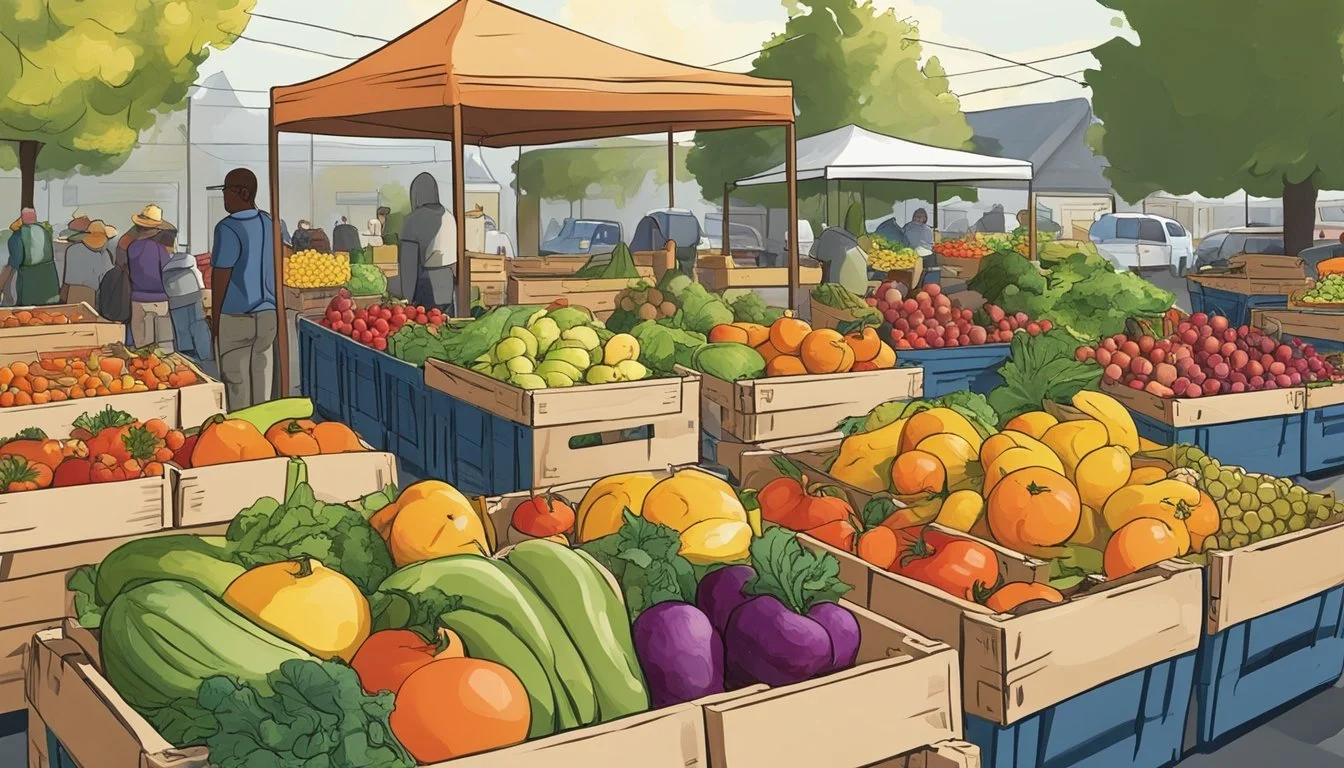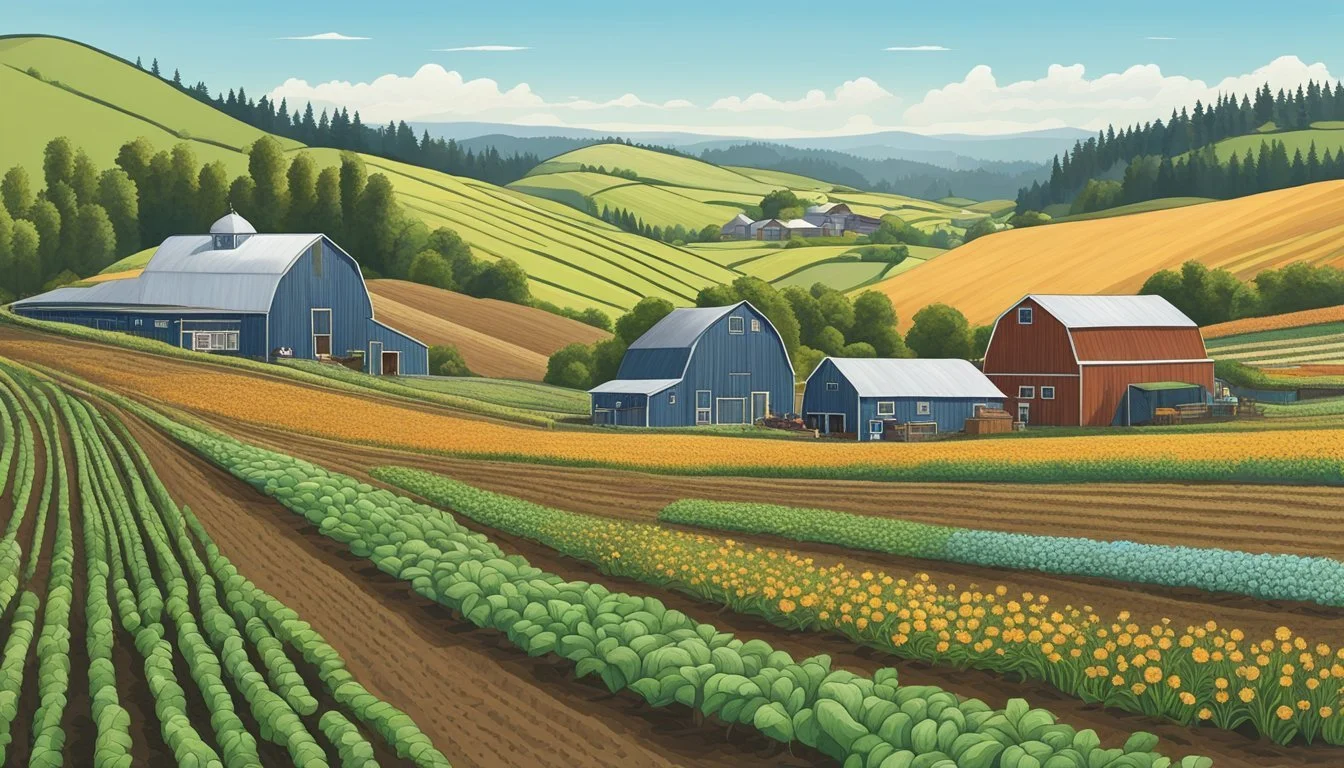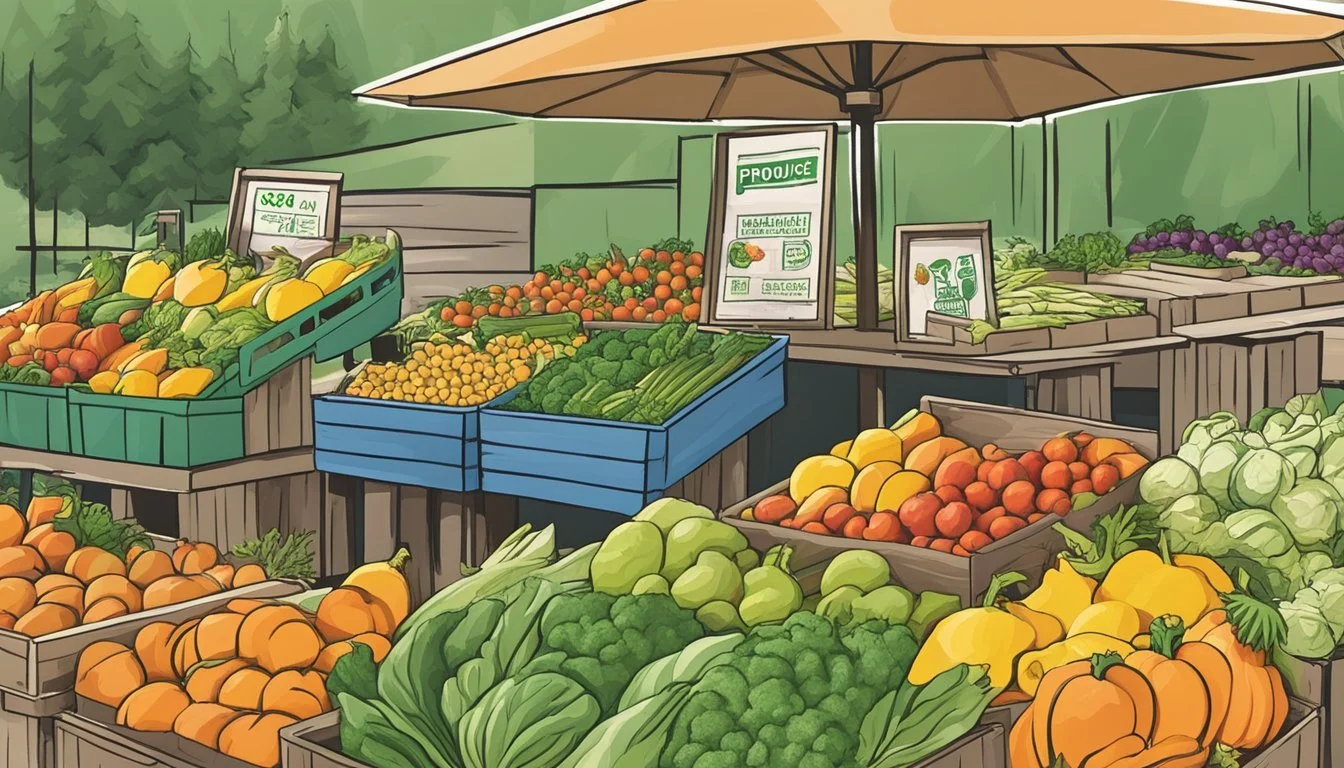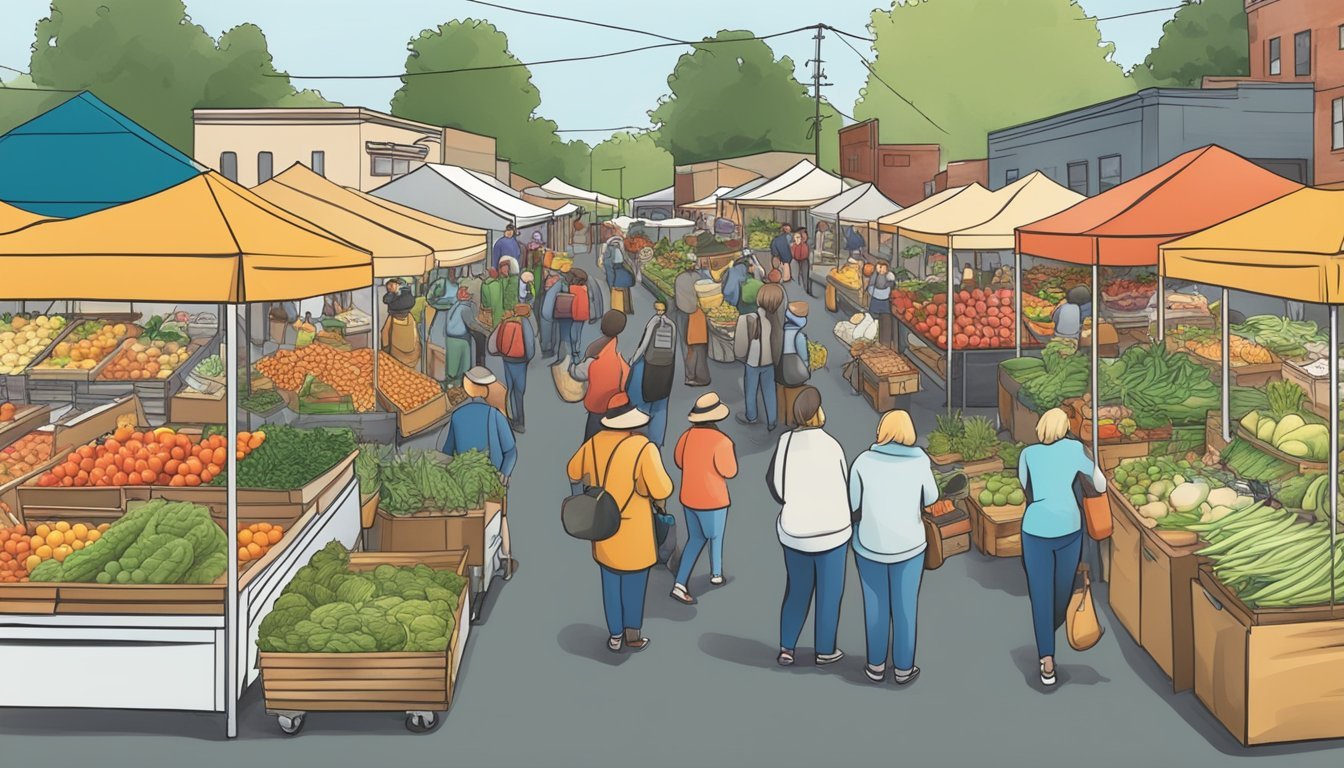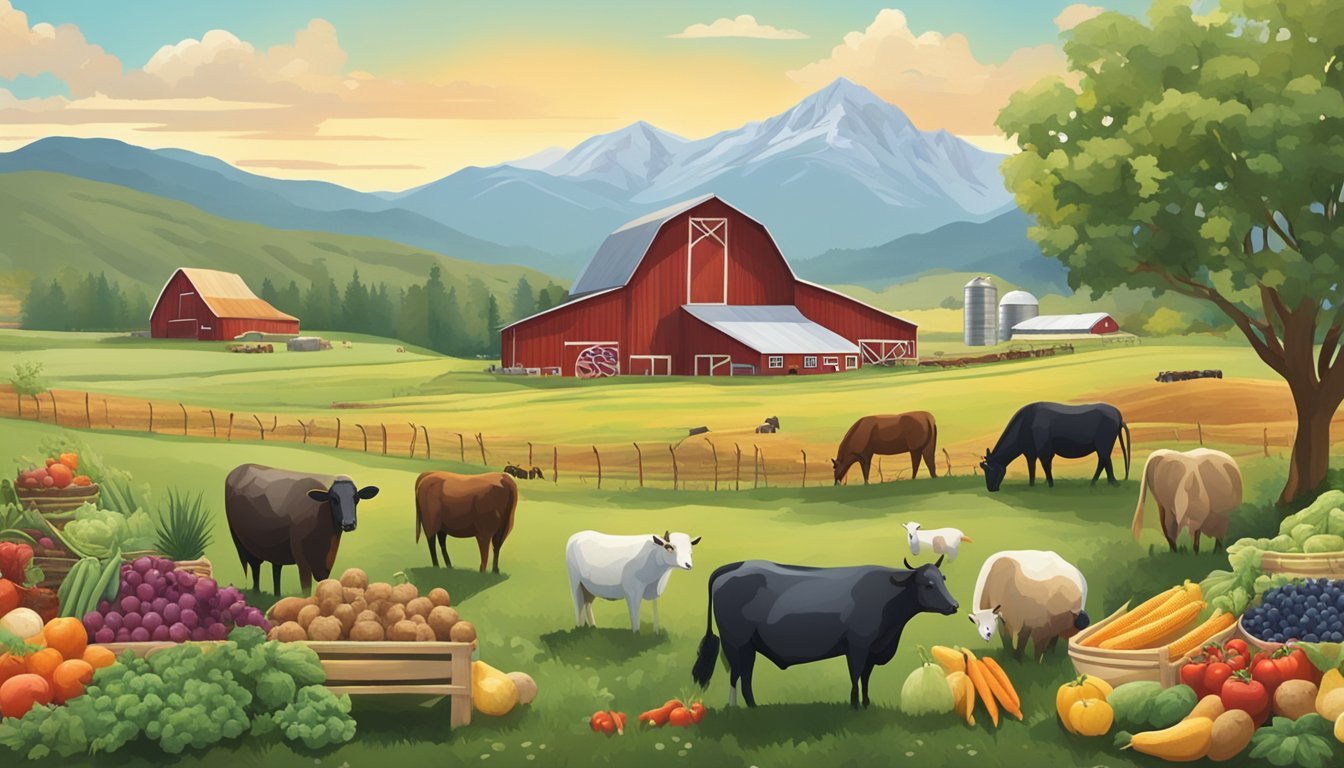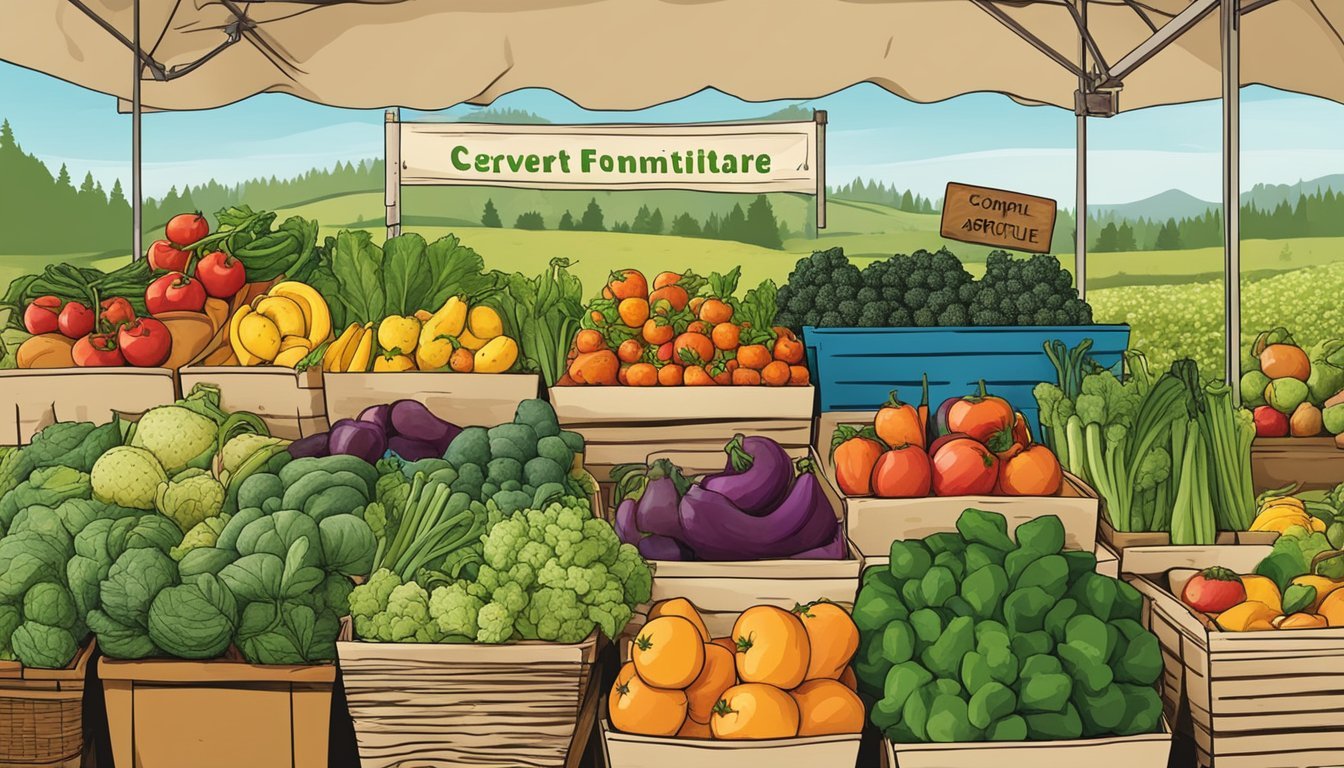Community Supported Agriculture (CSA) in Everett, WA
A Guide to Local Produce Subscription
Community Supported Agriculture (CSA) is a growing movement in sustainable agriculture that has taken root in Everett, Washington, as well as other parts of the state. This model of food production and distribution connects local farmers directly with consumers, fostering a partnership that benefits the environment, the economy, and the health of those participating. Through CSA programs, consumers invest in their local farm operations by purchasing a share of the harvest in advance, which provides farmers with the necessary funds for the growing season.
In Everett, residents have the opportunity to engage with local food systems by joining a CSA. By doing so, they receive a regular supply of fresh, locally-grown produce, supporting the local economy and reducing the carbon footprint associated with transporting food long distances. Washington State's diverse agriculture allows CSAs to offer a variety of fruits, vegetables, and other farm products, ensuring that members can enjoy seasonal eating while also contributing to sustainable farming practices.
CSAs in Everett and the surrounding Snohomish County area underscore the commitment to sustainable living and community well-being. Consumers value the connection to where their food comes from, and participation in these programs creates a direct link between the food on their tables and the land and hands that grow it. The emphasis on local and organic products reflects a broader awareness of environmental stewardship and a shift toward more resilient, community-focused food systems.
Understanding CSA
Community Supported Agriculture (CSA) involves individuals who pledge support to a farm operation, ensuring that the agricultural practices they value, such as sustainability and organic farming, are economically viable in their region.
History of CSA
The CSA model emerged from concerns regarding the sustainability of agriculture and a desire to foster a closer relationship between consumers and growers. The concept of CSA began in the 1960s in Germany, Switzerland, and Japan due to concerns about food safety and the urbanization of agricultural land. It later arrived in the United States in the 1980s, with a notable growth in the 1990s. Within the Snohomish region of Washington, CSA has anchored small-scale, family-owned farms, providing them with a structure to distribute organic produce directly to the community.
CSA Business Model
In a typical CSA model, members purchase a "share" from a farm. These shares represent a certain amount of seasonal produce that the farm commits to provide each member throughout the growing period. In return, members pay upfront for an entire season, which affords the farmer working capital to manage the farm operations. This model has proven to be a safety net for farms by supplying them with guaranteed income even in case of unexpected challenges. They offer various share options, including:
Vegetable shares: Weekly or bi-weekly boxes of fresh, often certified organic vegetables.
Fruit shares: A selection of in-season fruits, sometimes an add-on to vegetable shares.
Eggs, meat, and cheese: Some CSAs offer additional protein options.
Benefits of CSA
Community Supported Agriculture provides numerous advantages:
Support for Local Farms: It gives consumers a tangible way to support local, sustainable agriculture and potentially certified organic farms.
Local Economy: Money spent on CSA shares stays within the local region, bolstering the local economy.
Seasonal Eating: Members enjoy fresh, seasonal produce that is often harvested at its peak flavor.
Environmental Impact: Sustainable farming practices used by many CSA farms help reduce the carbon footprint related to food production and transportation.
Health: Consuming a variety of fresh, organic products promotes healthier diets.
Everett's CSA Landscape
Everett, WA, boasts a vibrant CSA community with a focus on woman-led initiatives and certified organic practices. The local farms prioritize a sustainable approach to agriculture by connecting closely with the community.
Key CSA Farms in Everett
Thimbleberry Farm: Situated in Snohomish, WA, this family-owned farm emphasizes regenerative farming practices to foster a diverse and resilient ecosystem.
Lowlands Farm: Lowlands Farm provides locally grown, seasonal produce to the Everett community, promoting the CSA model as a means for consumers to engage directly with their food source.
Woman-Owned Farms
Thimbleberry Farm: A noteworthy example of the woman-owned and operated farms in Everett's CSA landscape, leading in environmentally conscious farming.
Certified Organic Farms
Local Farm CSA: This collective empowers certified organic farms in the region, ensuring customers receive the freshest organic produce while supporting sustainable farming practices in Everett and its surrounding areas.
CSA Produce Varieties
Community Supported Agriculture in Everett, WA offers a diverse range of produce that varies with the seasons. Subscribers can expect an assortment of fresh, organic selections from local farms.
Seasonal Availability
CSAs provide a model where consumers receive fresh, seasonal produce directly from farmers. In the Everett region, the selection varies throughout the year:
Spring: commonly includes microgreens and onions, alongside the first harvest of vegetables like leafy greens.
Summer: features a bountiful array of vegetables and fruits, including favorites like zucchini, tomatoes, and berries.
Fall: brings root vegetables, Brussels sprouts, and a variety of apples and pears.
Winter: offers storage crops such as squashes and members may receive preserved or greenhouse-grown items.
Vegetables and Fruits
Members of Everett CSAs enjoy a wide range of organic vegetables and fruits across the seasons:
Vegetables: staple veggies such as carrots and lettuce, and unique offerings including heirloom variety tomatoes and edible flowers.
Fruits: typically consist of regional varieties of apples, pears, and stone fruits during the appropriate seasons.
Specialty Items
In addition to the standard selections, some farms offer specialty items to their CSA members:
Eggs: often available from farms that integrate poultry with crop production.
Microgreens: provide a year-round boost of flavor and nutrition, and some farms specialize in these delicate greens.
Heirloom Varieties: unique and flavorful options like heirloom Brussels sprouts can often be found in CSA shares during their season.
Sustainable Farming Practices
Community Supported Agriculture (CSA) in Everett, Washington, emphasizes environmentally sound farming methods. These methods prioritize soil health, biodiversity, and ecological balance.
Regenerative Agriculture
Regenerative agriculture employs principles that go beyond sustainability, aiming to rejuvenate the ecosystem as a whole. CSAs within this region often adopt this approach, heavily focusing on enhancing soil vitality and plant health. By integrating practices like cover crops and compost applications, they aim to not only maintain but also improve the land they cultivate, ensuring their farming supports a resilient ecosystem.
Soil Management
Soil is the foundation of any agricultural system, and proper soil management is key in sustainable agriculture. Certified organic farms near Everett typically abstain from using synthetic chemicals, opting instead to use organic matter to enrich the soil. Techniques such as crop rotation and the application of compost help maintain and enhance the soil’s health, leading to better crop yields and sustainability of the farming operation.
Pest and Disease Control
Effective pest and disease management in sustainable agriculture often requires a balance between different methodologies. Farmers may utilize natural predators to control pest populations and apply organic pesticides as a last resort. They also engage in preventive practices like selecting disease-resistant crop varieties and managing their planting schedules to avoid peak pest populations. This integrated approach helps keep crops healthy while minimizing environmental impact.
CSA Membership Options
Community Supported Agriculture (CSA) in Everett, WA offers individuals and families a way to directly engage with local farmers by purchasing shares that provide a steady stream of fresh produce throughout the growing season. These shares are typical of various sizes and may include options for additional farm products.
Share Sizes and Types
CSA members can generally choose from a range of share sizes depending on their household needs. A typical structure might include:
Small Share: suitable for individuals or couples
Medium Share: ideal for small families
Large Share: designed for larger families or groups
Types of shares can also vary:
Vegetable Share: a variety of seasonal vegetables
Fruit Share: a selection of local fruits
Full-Diet Share: a mix of produce, eggs, dairy, and sometimes meat
Pricing and Payment Plans
The price of a CSA share depends on the type and size of the share selected.
Small Share: $200 - $300
Medium Share: $300 - $400
Large Share: $400 - $500
Most CSAs in Everett offer flexible payment plans, including:
Full Payment Upfront: commit to the entire season with a one-time payment
Installment Plans: spread the cost over a predefined period
Some CSA farms may offer subsidized shares for low-income households or accept SNAP benefits.
Pick-Up and Delivery
Members typically collect their CSA shares from designated pick-up points, which may include:
The CSA farm itself
Local farmers' markets
Community locations like schools or churches
Alternatively, some CSAs offer a produce delivery service, delivering directly to members' homes. Delivery services can sometimes incur additional costs.
While most CSAs have scheduled pick-up times, select farms may also offer a U-Pick option, allowing members to harvest certain items themselves.
Community Impact
Community Supported Agriculture (CSA) programs in Everett, WA significantly impact the local community through economic, educational, and relational avenues, fostering a vibrant food ecosystem and tighter community bonds.
Support for Local Economy
CSAs play a pivotal role in sustaining the local economy of Everett. By subscribing to CSAs, customers directly invest in local farmers, ensuring a stable income for these small businesses. This financial support helps maintain sustainable agriculture practices, as farmers often use a portion of their funds for land conservation and eco-friendly farming techniques. The inclusion of CSA products in farmers markets also stimulates the local trade, as patrons frequently purchase additional goods.
Economic Boost: Direct customer investment and ongoing farmer support.
Sustainable Practices: Funding translates to sustainable agriculture enhancements.
Education and Engagement
Through CSA programs, the people of Everett gain valuable education about the source of their food. Local farmers contribute to this knowledge-sharing by providing insights into farming practices and food seasonality. CSAs often encourage members to visit farms, either through farm stands or pick-your-own produce events, fostering a deeper appreciation for agriculture among community members.
Knowledge Sharing: Insight into food production and sustainable practices.
Community Participation: Opportunities for hands-on experiences with local farmers.
Building Relationships
The CSA model is integral to constructing a sense of community among Everett residents. Subscribers not only establish regular interactions with farmers but also connect with other members sharing similar values. These relationships often extend beyond the CSA, fostering a network of support and camaraderie within Everett's community.
Farmer Interaction: Regular opportunities to connect with those who grow their food.
Community Connectivity: Bonding over shared interests in local and sustainable food sources.
Animal Husbandry and CSA
Community Supported Agriculture (CSA) programs in Everett, WA, include diverse offerings, extending beyond crops to animal products. These offerings may feature pasture-raised livestock and a variety of poultry and eggs, emphasizing ethical and sustainable farming practices.
Pasture-Raised Livestock
CSAs in the Everett region promote the well-being of livestock by providing them access to open grass pastures. This method supports healthier animals and leads to high-quality meat products. They often offer 100% grassfed beef and 100% grassfed lamb. Some farms specialize in pasture-raised Berkshire pork, known for its juiciness, flavor, and tenderness. Another ethical choice available includes Katahdin hair sheep lambs, which are raised for their meat and not for wool, thereby reducing stress on the animals due to shearing.
Beef: 100% grassfed, provided with vast grass pastures for grazing.
Lamb: Also raised on grass pastures, leading to a more natural lifestyle.
Pork: Berkshire breeds are commonly pasture-raised for optimum health and meat quality.
Eggs and Poultry
Ethically focused CSAs in the area are known for their free-range and pasture-raised poultry, such as chickens, ducks, (What wine goes well with duck?) and sometimes heritage turkeys. The birds are allowed to roam free, resulting in healthier and happier flocks, and potentially more nutritious eggs. Customers can often find both chicken and duck eggs available through their CSA subscriptions. The farms may also delve into offering products from heritage turkeys, which are sought after for their superior flavor, especially during the holiday season.
Chicken Eggs: Sourced from free-range chickens that enjoy a natural environment.
Duck Eggs: Richer and larger than chicken eggs, from ducks raised on pasture.
Poultry Meat: Includes chickens and often times heritage turkeys, known for their distinctive taste.
CSAs providing animal husbandry options contribute significantly to the community by upholding organic principles and offering locally-sourced, sustainable meat and egg products.
Additional Products and Services
In addition to the traditional offerings of vegetables and fruits, many CSAs in Everett, WA have expanded their range to include a variety of other farm-fresh products, ensuring that members have access to a diverse selection of local goods.
Honey and Bee Products
Local CSAs such as Skipley Farm and others within the area offer a sweet addition to their shares with the inclusion of honey-related items. Members can often find honey sticks for a quick treat or jars of Beeline Organic Honey for their pantry.
Herbs and Microgreens
Uber Organic and Fobes Hill Farm are known for their culinary herb micros and microgreens, supplying customers with intense flavor profiles and nutritional benefits. These delicate greens can elevate any dish, and some farms include recipes to help integrate these herbs into daily meals.
Special Events
Many farms have transformed their CSA experience by incorporating special events. Farmstand sales provide opportunities for members to shop additional products, while some locations may host gatherings such as harvest festivals, offering a space for community connection and seasonal celebrations.
Challenges and Considerations
Community Supported Agriculture (CSA) programs in Everett, WA, ensure that residents have access to fresh, organic produce straight from local farms. They face specific challenges, including environmental factors, seasonal limitations, and customer expectations. These aspects require careful management to maintain the viability and sustainability of CSA operations.
Environmental Factors
Local farms participating in CSA programs must contend with the region's climate. Everett, characterized by its wet winters and relatively mild summer conditions, can affect crop yields and the variety of vegetables that can be grown. Inclement weather can also disrupt the timing and delivery of CSA shares, a factor that farms must plan for to ensure timely distribution.
Seasonal Limitations
Each season dictates the types of produce available for CSA shares. Local farms must clearly communicate the seasonality of their offerings to consumers to set accurate expectations. They often have to supplement winter shares with storage crops or partner with other producers to provide a well-rounded selection, making balance crucial for year-long operation.
Customer Expectations
Customers often expect a consistent supply of diverse, high-quality organic vegetables and eggs throughout the CSA season. Local farms must balance these expectations with the reality of agricultural production, which can experience fluctuations. To maintain customer satisfaction, they must emphasize the freshness and quality of their produce, as well as the community benefits of supporting local agriculture, while managing variability in share contents.
Resources for CSA Members
Participation in a CSA offers members a direct line to high-quality, local produce, as well as resources that can enhance their overall experience. They receive benefits beyond just the weekly box of goods; they gain access to recipes, storage techniques, and community events that help them get the most out of their membership.
Recipe Sharing
Members often receive recipes curated to the contents of their recent CSA boxes. Sharing recipes not only helps CSA customers utilize their produce efficiently but also fosters a sense of community. One could find these recipes through:
CSA newsletters: Specific to the season's harvest.
Farmers markets: Often have recipe cards for produce they're selling.
Storage Tips
The longevity of CSA produce is crucial for members. Proper storage tips ensure freshness and reduce waste, so CSA farms frequently provide guidance on how to best store each type of produce. Members can expect:
Leafy greens: Store in a loose plastic bag with a paper towel to absorb excess moisture.
Root vegetables: Best kept in a cool, dark place, possibly in a breathable container to maintain freshness.
Community Events
CSA farms and local farmers markets often host events that aim to educate and engage members. Community events can range from farm tours to cooking classes, allowing for rich interaction between farmers and CSA members. Upcoming events are usually communicated through:
CSA farm websites: Listing dates, times, and details about community events.
Local agriculture newsletters: Providing information about the broader spectrum of agriculture-related activities in the area.

